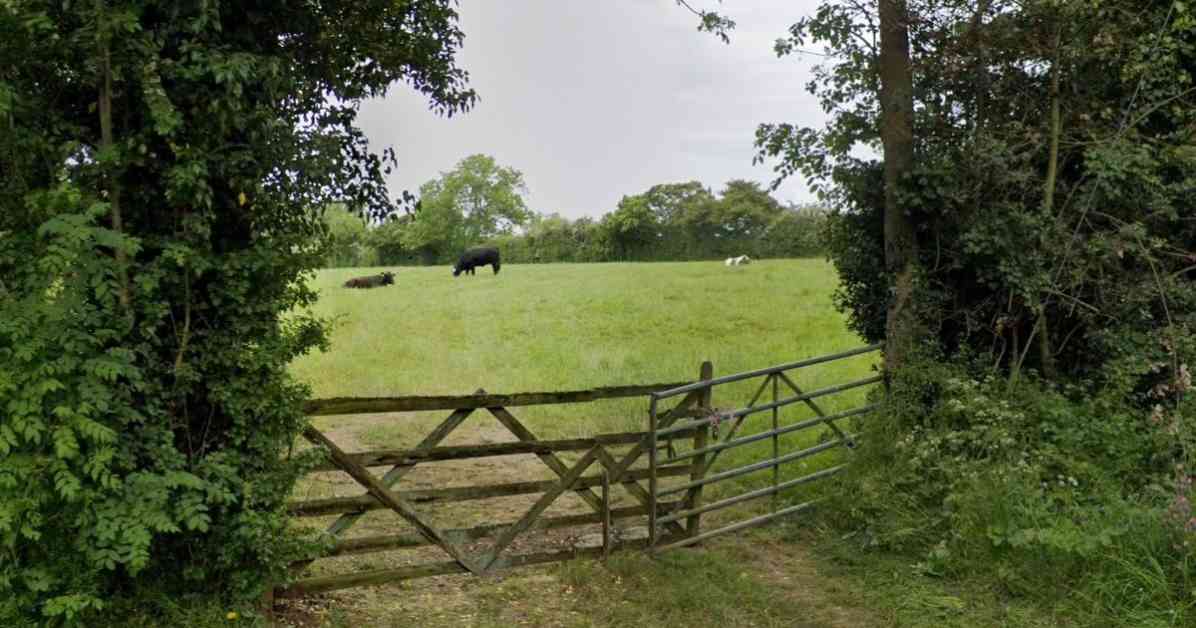Solihull Council Approves Demolition of Barn for New Homes
Solihull planners recently made a decision that has stirred up some controversy in the local community. The council has given the green light to a proposal to demolish a 1950s barn in order to make way for the construction of two semi-detached homes on land at Heron Bank Farm in Spencer Lane, Berkswell. This decision comes after the plan was submitted to Solihull Council last November by an applicant known only as Mr. Hicken.
According to a planning statement from agents representing the applicant, the proposal involves the demolition of the existing barn to make room for two new dwelling houses along with associated car parking and garden space. The new homes are to be designed as a pair of semi-detached, single-story properties, strategically placed to provide an outdoor amenity space for each property. The architectural design of the new dwellings aims to preserve the agricultural character of the site and complement the existing residential conversion scheme for neighboring poultry barns.
The barn slated for demolition is just one of several agricultural buildings at the farm complex, constructed between 1958 and 1963. Initially used for poultry operations until around 1985, the building was later repurposed for mushroom production from 1988 to 1998. Since then, it has remained vacant except for general agricultural storage.
Council officers, who recommended approval of the plan, emphasized that the benefits of the proposal outweigh the harm to the green belt, citing “very special circumstances” as justification for granting planning permission. The reduction in built development on the site is expected to have a positive impact on the openness of the green belt, a key consideration in the decision-making process.
Expert Insights on Green Belt Development
When it comes to development projects in green belt areas, the decision-making process can be particularly complex. Local authorities must carefully weigh the benefits of development against the need to preserve the environmental integrity of these protected spaces. According to urban planning expert Dr. Sarah Thompson, “Balancing the demands of housing development with conservation efforts is a delicate dance. In cases where very special circumstances can be clearly demonstrated, councils may choose to grant planning permission, provided that the benefits of the project clearly outweigh any potential harm to the green belt.”
In the case of the barn demolition at Heron Bank Farm, Solihull Council appears to have determined that the benefits of creating new homes on the site justify the loss of the existing structure. While some local residents have expressed concerns about the impact on the character of the area, others see the potential for new housing as a positive step towards addressing the ongoing housing shortage in the region.
Community Response and Future Implications
As news of the council’s decision spreads throughout the community, opinions are divided on the implications of the proposed development. Some residents welcome the addition of new housing options in the area, seeing it as a necessary step to support the growing population. Others, however, are concerned about the loss of agricultural heritage and the potential impact on the surrounding green belt landscape.
Moving forward, it will be important for local authorities to engage with residents and stakeholders to ensure that future development projects strike a balance between meeting housing needs and preserving the natural environment. By taking into account the diverse perspectives of the community, policymakers can work towards creating sustainable, thriving neighborhoods that benefit both current and future generations.
In conclusion, the approval of the barn demolition at Heron Bank Farm marks a significant development in Solihull’s ongoing efforts to address housing challenges while navigating the complexities of green belt planning regulations. As the project moves forward, it will be essential for all parties involved to collaborate and communicate effectively to ensure that the outcome benefits the community as a whole.



























